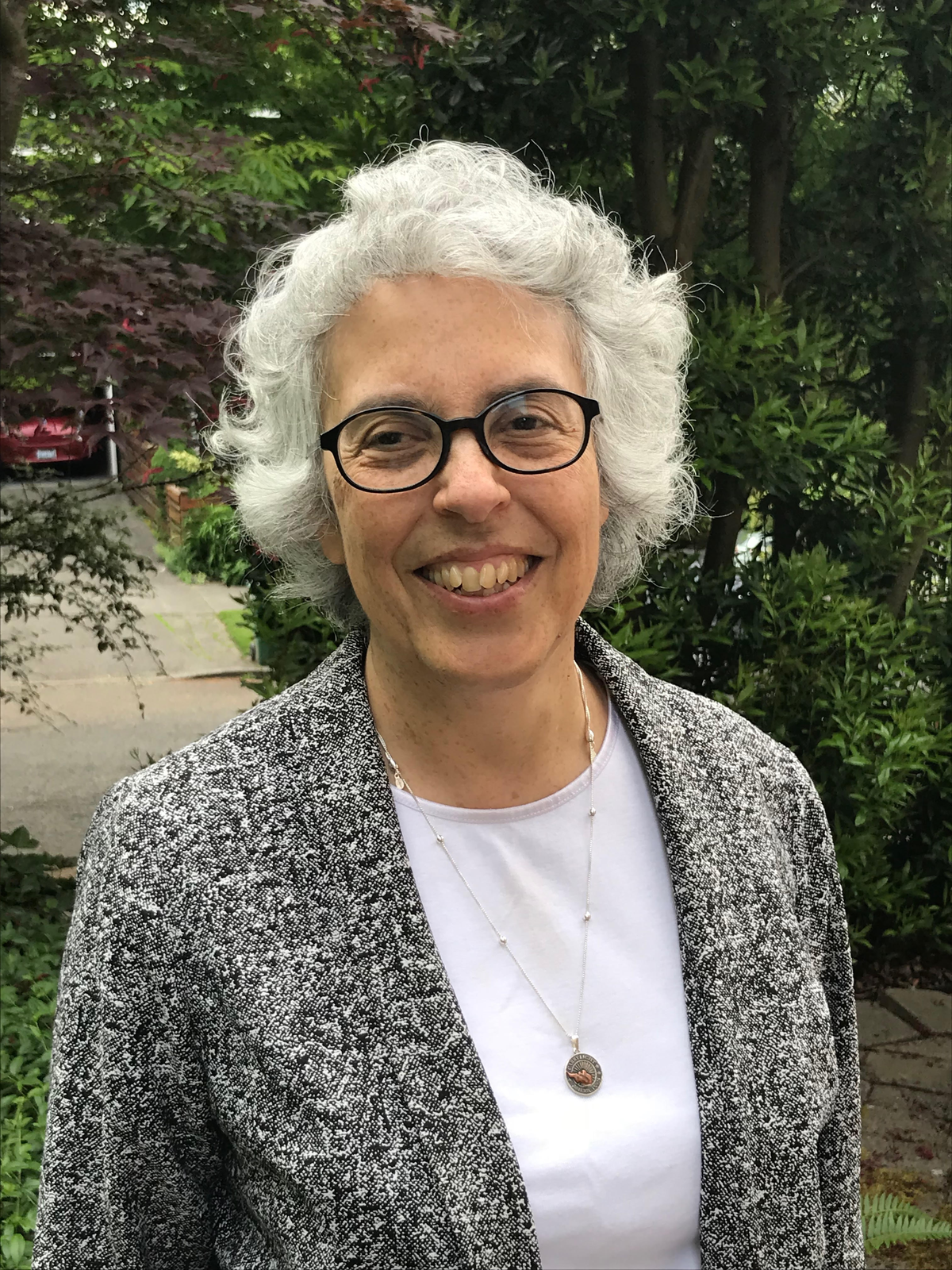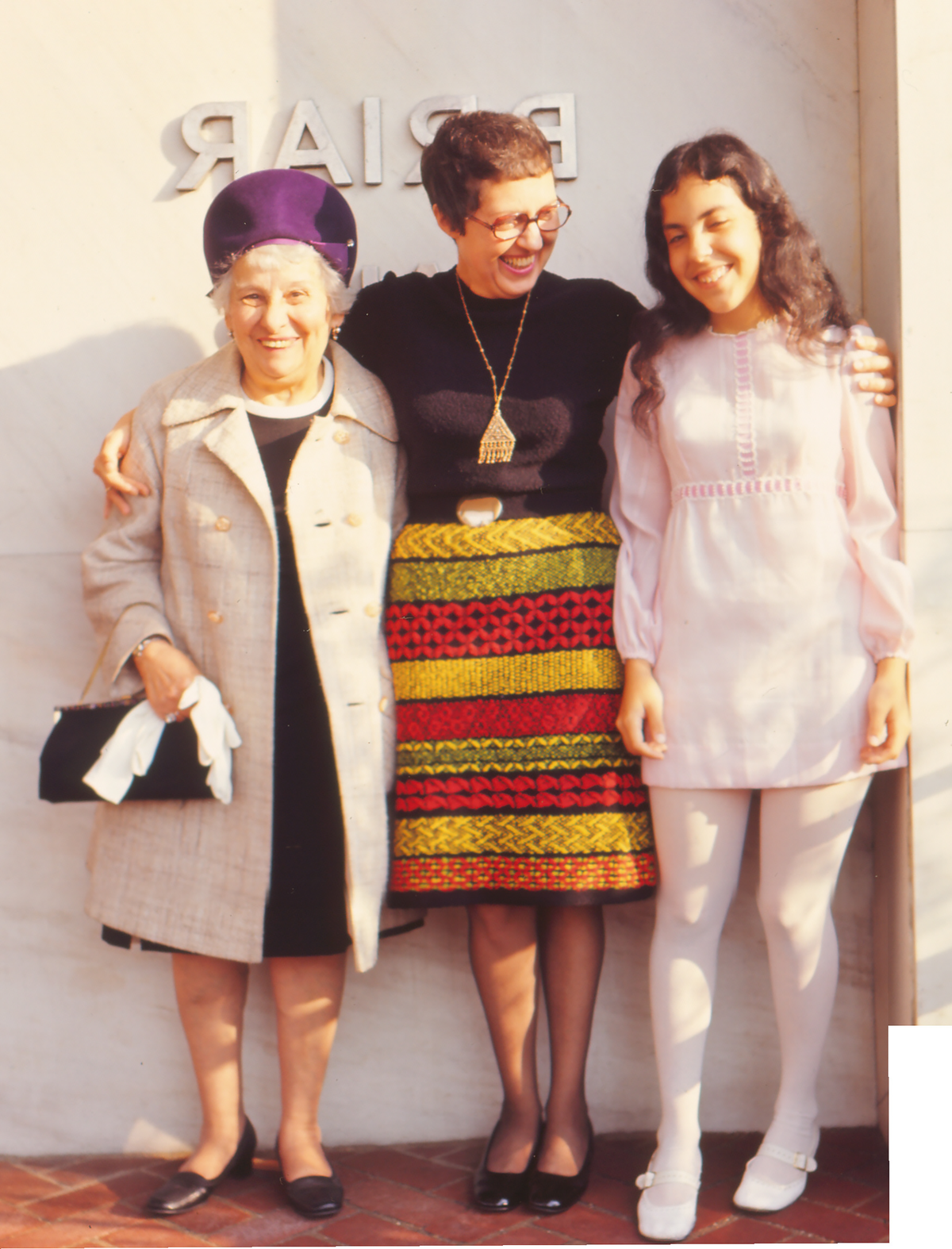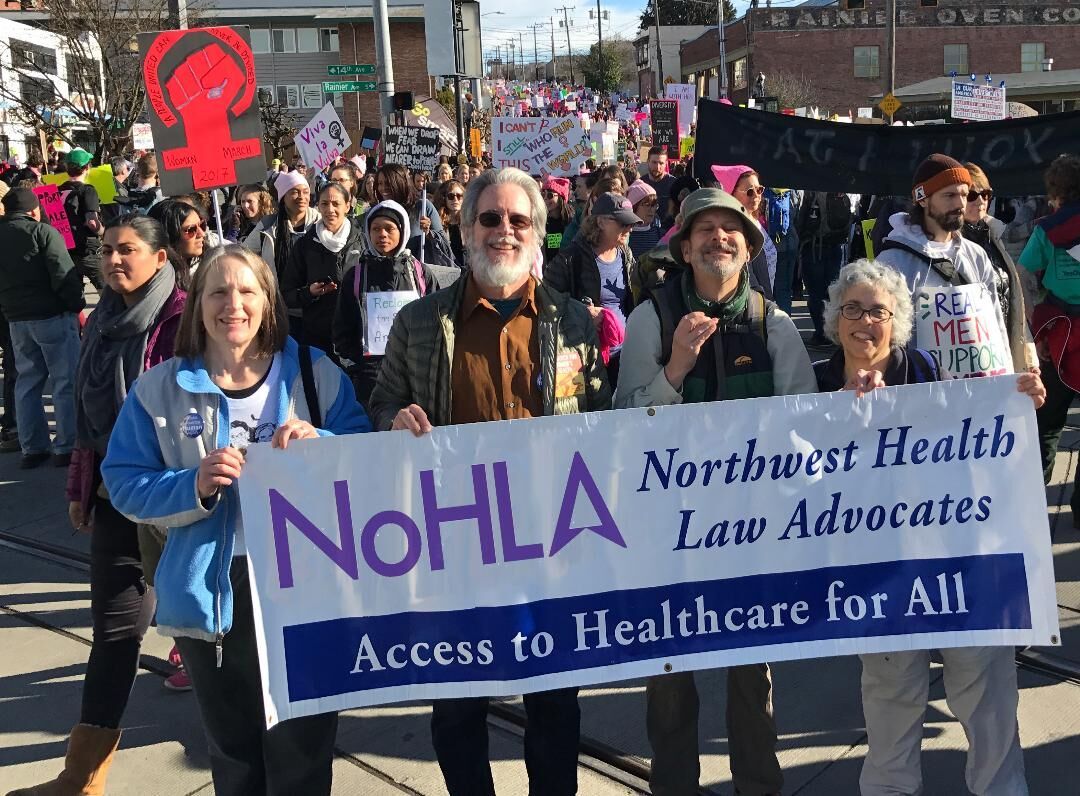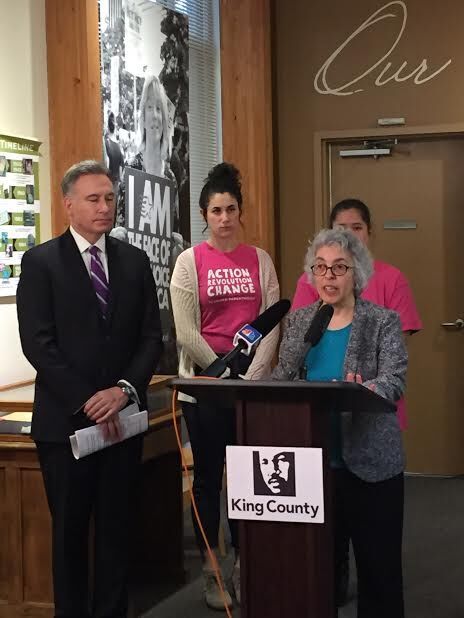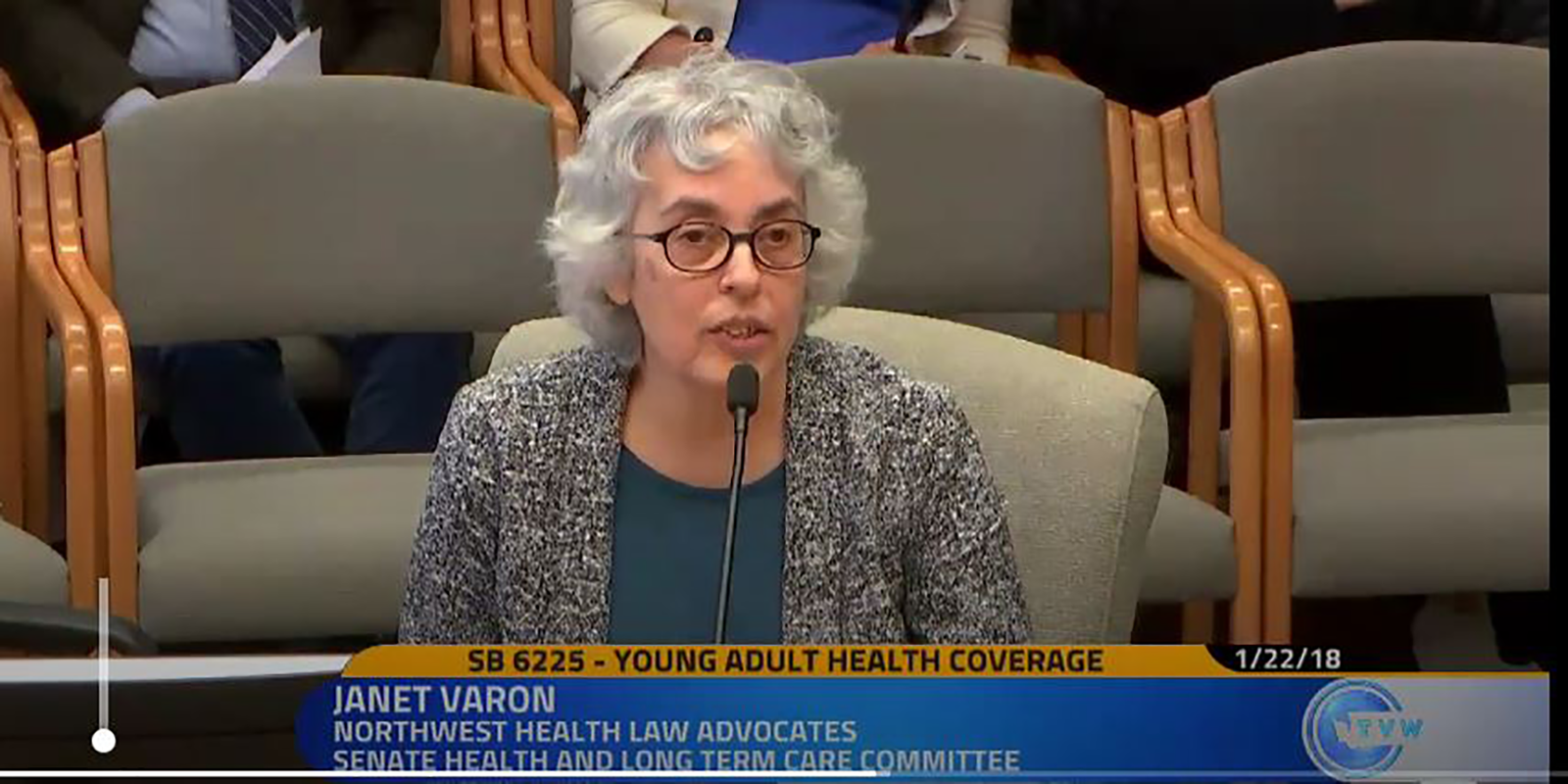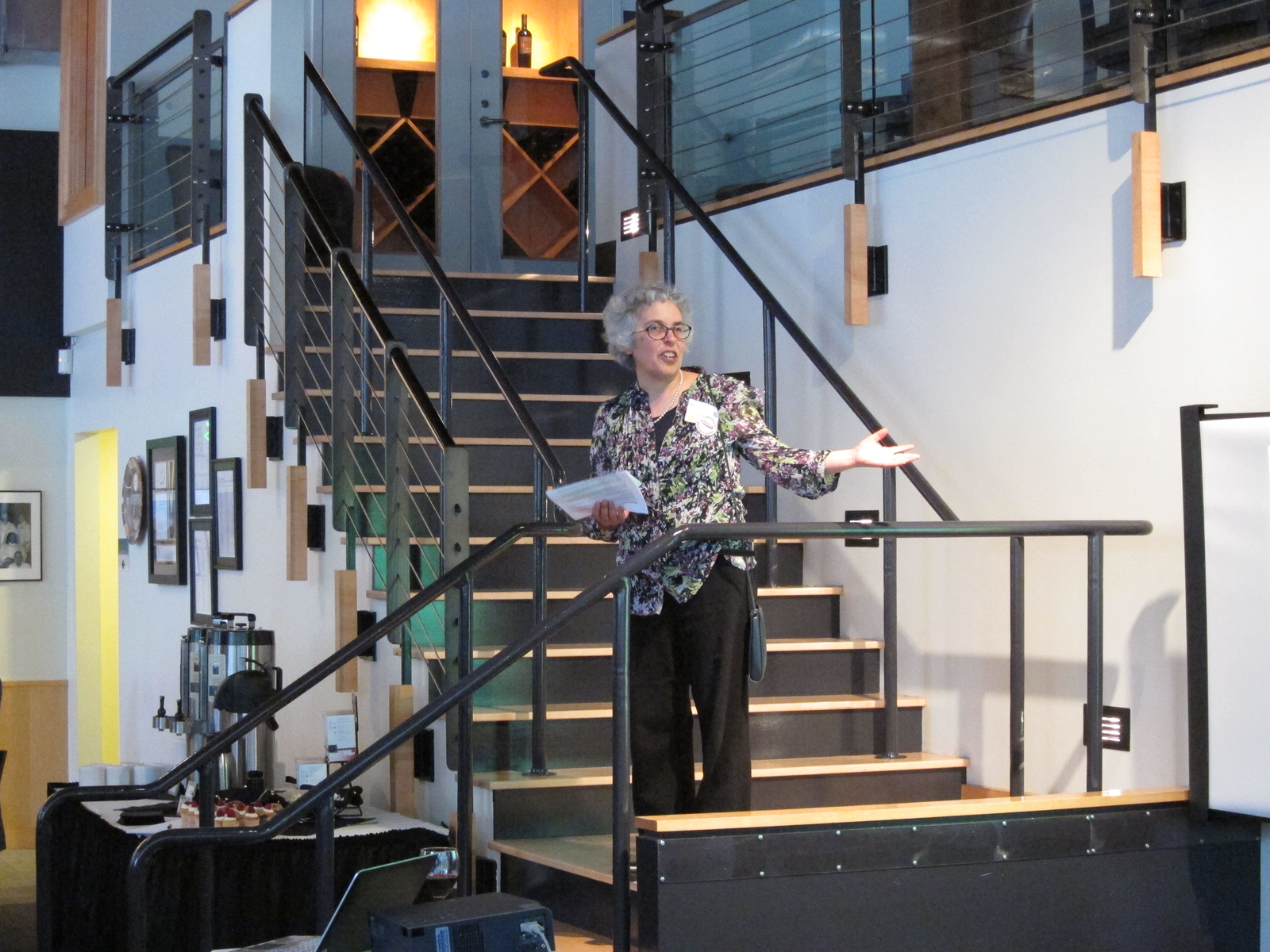I grew up in Riverdale, in the northwest Bronx. My mother was born in Jerusalem and moved to this country at the age of three in 1927. She is a retired school librarian. I'm from a “mixed marriage”—my father’s father was Sephardic. My father is also from a mixed marriage. His father was from Turkey and his mother was Ashkenazi, from Brooklyn. My grandfather emigrated from Turkey via Paris and then met my grandmother in New York and had a dental practice there. My father was born in Brooklyn. It was always assumed that my father would become a dentist and take over his father’s dental practice, and he did. My parents look fondly back on a few years when he was an Air Force dentist, and they lived in Japan and in France. Then they came back and settled in Riverdale where they lived until this past July, when my brother and I helped them moved to Seattle.
My mother grew up in a very observant family. I was not raised as observant; we belonged to a Reform congregation. My father’s main association with Judaism is cultural, although he did have a Bar Mitzvah. Both my parents have been interested in Torah study and in Jewish scholarship through the years. My parents both inculcated the values of serving the community and repairing the world—Tikkun Olam. My father was the kind of dentist who would see anybody; payment was secondary. Many of my friends and peers had similar values. In the Jewish community where I grew up, Jewish values were integrated into daily life.
I went to Harvard College, then worked at Saint Vincent’s Hospital in New York. They had a Department of Community Medicine, and my job as a Research Assistant was to write up the successes of the Chelsea-Village Program “Health Care for the Homebound Elderly.” The people they served were eligible for Medicaid and Medicare, and all that was funded at the time was post-hospital, short-term care. They were able to demonstrate that they kept people with chronic conditions stable, and out of nursing homes. I got to see something of the world of policy advocacy there. That led me to consider pursuing a law degree—to be able to have some power and ability to change things for the better. I went to law school at Harvard with that in mind. I was always interested in a public interest career of some kind. During law school I worked in legal services in Tennessee and at a public interest organization in D.C. When I graduated, I was drawn to representing individuals who are low income and have problems with accessing benefits. I wound up in Seattle and never left. I was drawn to the opportunities here, the landscape, and the ability to balance work and family, with easy access to hiking and opportunities to be in nature.
I noticed there were professors who didn’t call on women as much. But there were also women who raised their hands a lot; I was not one of them. We had a group of students who were advocating for more women professors. They had some conversations with the Dean, who said “I would like to hire more women professors, but we're just not finding the women with the qualifications…”, which were credentials that women couldn't easily earn. That's what was going on at the time. Now they've had women Deans and other leadership positions. The school has put a lot of attention toward diversifying, which is heartening to see.
In law school at that time, there was no funding for people to do public interest summer work, so we developed Student Funded Fellowships to help collect money from the class—especially from students who were going to corporate summer jobs and making significant money. With their donations, we’d grant fellowships to people for public interest internships. There was also a lot of pressure to take firm jobs because of finances, but also because the firms did on-campus interviewing way before the Public Interest employers posted openings. So, students would get offers from firms first, and that would start some people on the path toward a private sector career. I did not pursue that path.
I worked at Evergreen Legal Services for over 13 years. I mainly represented individuals in administrative hearings; they’d be denied or cut off benefits and they were, in many cases, desperate to get the decision overturned and get back on. There were a number of different scenarios that came up repeatedly: Medicaid, food stamps, public cash assistance, child care benefits not being covered. When we saw systemic issues that came up repeatedly, we looked for ways that we could address them for everyone in the same situation. When the policies appeared to violate state or federal law, unfairly affecting a group of people, we sometimes appealed to a higher court.
In the mid-90s, toward the end of my time at Evergreen, the state embarked on a health reform of its own. It was passed in 1993 and largely repealed in 1995, but they left in place the rule that the insurance companies couldn’t deny people coverage because of their preexisting conditions. Unfortunately, this led over the next few years to a “death spiral” of insurance premiums. Healthy people started dropping coverage, which forced up the premiums for the less-healthy remaining population. This accelerated, the prices went up more, and few people were left. Eventually it had to be stopped by excluding the people with the most expensive conditions from the market and placing them in a more expensive “high-risk pool.” But that experience instilled in many people who worked so hard on the original reform, the idea that we want to get back to a better system of universal coverage: no exclusions for preexisting conditions, and a requirement that everyone has coverage.
I started Northwest Health Law Advocates (NoHLA) with the idea that we would work toward better access to healthcare, envisioning a world where everyone would have quality, comprehensive, affordable health coverage. We continued to work on improving low-income coverage, but also looked more broadly because increasingly, even middle income people couldn't afford coverage. We’re seeing that trend continue; even people who are covered through the Affordable Care Act and employer policies are “underinsured” due to premium costs, high deductibles, and limitations on access to care. We worked on some state health reform efforts; working to try and get better access in various ways. We had a rural health access project at one time that was primarily about improving access in eastern Washington. We did a lot of work on availability of hospital charity care. State law requires hospitals in Washington to provide free and reduced-cost care to low-income people. But people may not know about it, or there are barriers to applying for it, so people end up with medical bills even when they qualify. If they're lucky enough to get an advocate who knows about it, they can get that straightened out. Recently, NoHLA helped pass state legislation to improve notification about the availability of charity care.
In the last few years, since the Affordable Care Act passed, we have been focusing on making sure it's implemented in Washington in the best possible way. We were quite involved when the Health Care Authority and the Health Benefit Exchange were forming their rules and policies around how to implement everything—from testing the online HealthPlanfinder application; to commenting on the draft program rules; to giving input on procedures for ensuring that people could easily renew coverage. We had seen in Medicaid and other programs that there’s always a lot of “churn” when it's time to review eligibility. People don’t get the notice, or they don't respond in time, or they don’t understand what they're supposed to do, and this can cause breaks in coverage and difficulty getting back on. The ACA streamlined much of this, and we wanted to make sure it was fully implemented. We also proposed improvements to the process to address problems people were experiencing, and many of our suggestions have been adopted.
We also have worked to improve reproductive health access. One of our big projects has been monitoring insurance companies’ adoption of improvements in contraceptive coverage. The ACA requires that most health insurance plans provide contraceptives at no cost. And all the different methods should be covered, including drugs, barrier methods, and other types. We wanted to make sure these health insurance companies were making it clear that these methods were available, without cost, so we engaged in a project making “secret shopper” calls to their customer service and sales representatives, asking whether we could get coverage for certain contraceptives. A number of the insurance reps gave wrong information. The insurance commissioner, Mike Kreidler, then called the insurance company representatives into a room with us and said “You've seen what the secret shopper survey and these other investigations showed. I’ll give you a certain period of time to respond,” and we said, “We’ll incorporate your responses in the report we're going to publish.” That was a very effective means of advocacy; a number of the plans took action, improved their information, and trained their representatives. In our report, we made additional recommendations on how insurers could create better access—for example, covering emergency contraceptives at no cost. Some of the plans said they wouldn’t, some said they would think about it, and one actually said "We think that's great idea, we’ll do it.” So that was gratifying.
Health policy today—where is it headed?
At the federal level, developments in health care are discouraging, such as the attempts to repeal the ACA, which has helped so many people get care and avoid bankruptcy. But in Washington, we are fighting alongside the Governor, the Attorney General, and others to defend what we have at the federal level. And at the state level, there are even initiatives to improve how health care is provided. I feel lucky to be an advocate in a state like this. I see colleagues who are in states like Kentucky that have imposed work requirements on Medicaid with the support of the federal government and their state government, even though it's causing people to fall off the program. In Washington, by contrast, our Governor wants to support people on Medicaid getting work through support services, rather than withholding health coverage. So overall, this is a very difficult time, but I think it'll get better. For example, the polling on the ACA shows that a majority of people now support it. They see that this is beneficial.
We’re a small nonprofit so we have some limits on what we can do. We work in coalition with partners that have more lobbying capacity, and we provide legal analysis, draft informational materials, look at bills and suggest changes. Occasionally we’ll testify and talk to legislators. For example, I recently testified on a bill about extending health coverage to low-income young adults who don’t qualify now. We have one of the most accessible programs for children in the country, nicknamed “Cover All Kids.” This bill would extend subsidized coverage from age 19 to age 26. Our state used to offer a health insurance program called Basic Health before the ACA and that was largely replaced by the Medicaid expansion. But some people fell off—mainly immigrants who didn't qualify for the federal program. We are interested in seeing that restored.
NoHLA's organization and funding
I’m the Executive Director at NoHLA. We have an Administrative Coordinator and three attorneys. We receive some funding through Northwest Justice Project, which is a legal service organization. We consult with attorneys and community organizations around the state, and we coordinate advocacy around health care. We also receive grant funding and donations. I have a great board that helps with fundraising. We also have a part-time Communications Consultant who writes our newsletters and other NoHLA communications.
Policy work vs. individual cases
It's satisfying to be able to change something systemically, to prevent a situation where one person after another has the same problem, as with representing individuals. I do miss that kind of interaction, but in my organization, we make a point of talking to as many people as we can so that we can find out what's going on on the ground. We filter that information up to the policy level. For example, we go to an agency and say “This is what we're hearing. It’s a problem that needs to be addressed—here are some ideas for how we can work together to do that.”
We want to continue doing this work until all people in the state have access to affordable, comprehensive, quality health coverage. It’s been a lifelong goal for me personally and I love what I'm doing. I can’t even think about retiring yet. In 2019, NoHLA will be 20 years old. It's going strong and I feel a responsibility to keep going.

